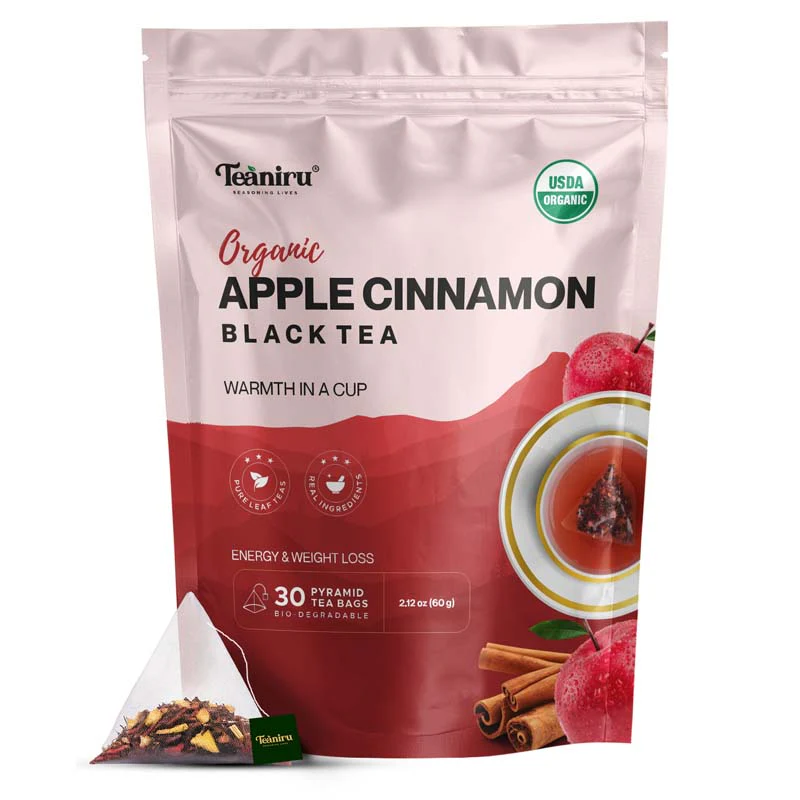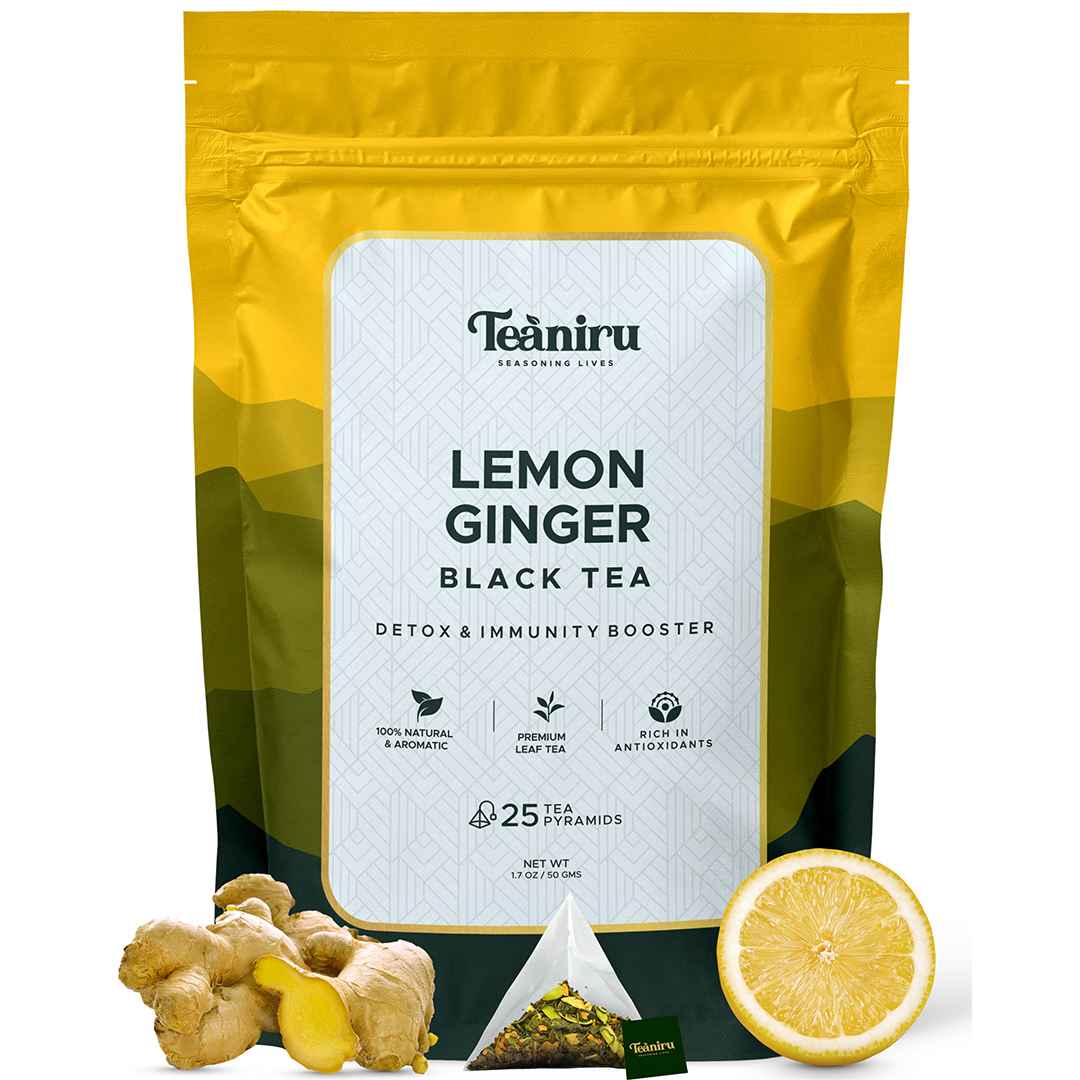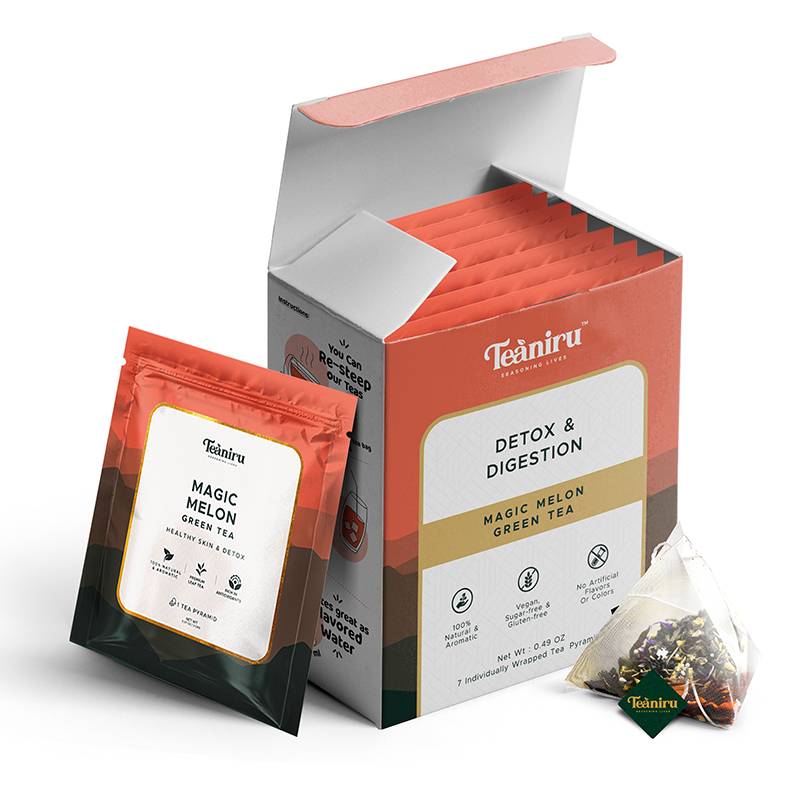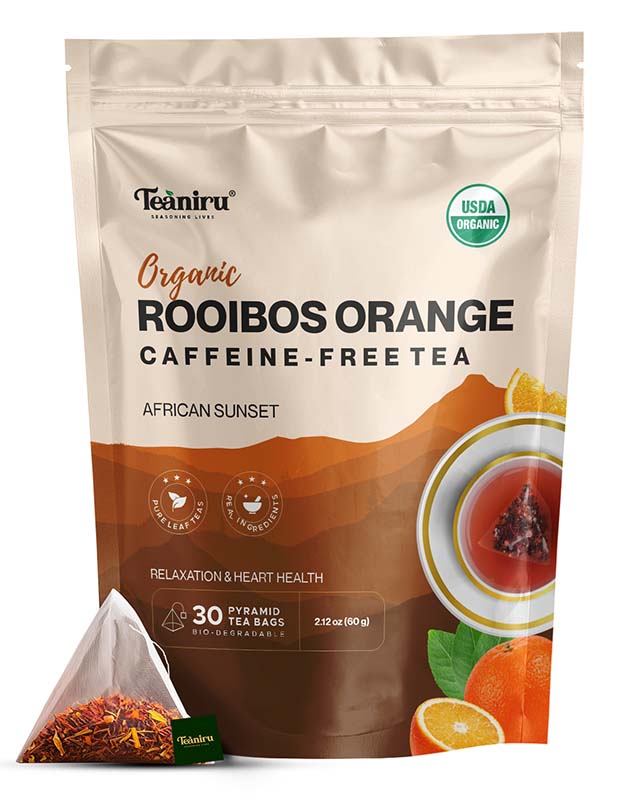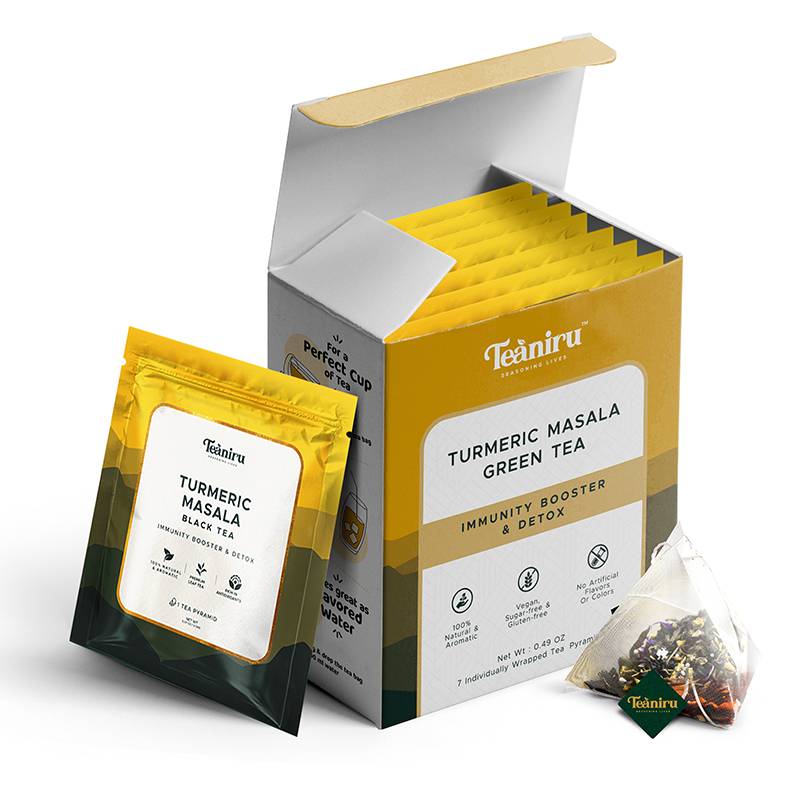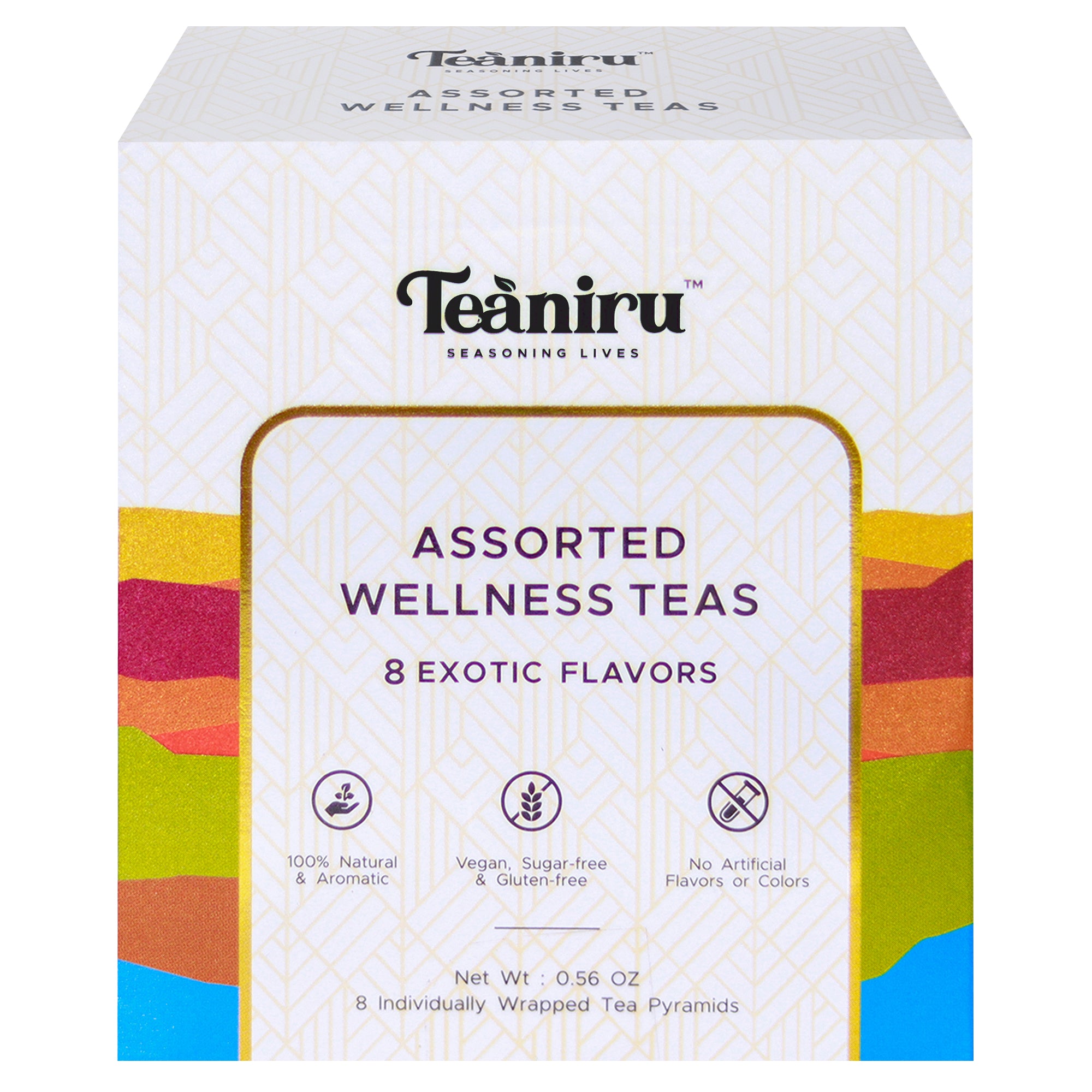You may also like
If you're looking for a healthy alternative to coffee, you might be considering green tea. It's packed with antioxidants, has a subtle flavor, and is known to provide a gentle energy boost. But does green tea actually contain caffeine? The answer might surprise you. In this article, we'll explore the caffeine content of green tea and how it compares to other caffeinated beverages.
Why one should consume caffeine?
Caffeine is a naturally occurring stimulant that belongs to a class of compounds called xanthines. When consumed, caffeine is quickly absorbed into the bloodstream and travels to the brain, where it blocks the action of adenosine, a neurotransmitter that promotes sleep and suppresses arousal.
By blocking adenosine receptors in the brain, caffeine increases the activity of other neurotransmitters, such as dopamine and norepinephrine, which promote wakefulness, arousal, and improved cognitive function. This is why caffeine is often used to help improve mental alertness, concentration, and focus.
In addition to its effects on the brain, caffeine also has a number of other physiological effects. It can help increase heart rate and blood pressure, which can improve blood flow to the brain and other organs. It can also help stimulate the release of fatty acids into the bloodstream, which can be used as fuel by the body's cells.
Overall, caffeine can provide a number of benefits when consumed in moderation. These include increased alertness, improved athletic performance, weight loss, reduced risk of certain diseases, and improved mood.
However, it's important to note that excessive caffeine consumption can have negative side effects, such as increased heart rate, jitteriness, and insomnia. As with any substance, it's important to consume caffeine in moderation and to be aware of any potential risks and side effects.
How much is too much Caffeine?
Consuming moderate amounts of caffeine is generally considered safe for most healthy adults. The U.S. Food and Drug Administration (FDA) recommends that adults consume no more than 400 milligrams of caffeine per day, which is roughly equivalent to four 8-ounce cups of coffee.
However, individual tolerance to caffeine can vary, and some people may be more sensitive to its effects than others.
Benefits of green tea caffeine
Green tea is a popular drink that contains caffeine, which can provide a range of potential benefits when consumed in moderation. Here are some of the ways that green tea caffeine can help support your health and well-being:
1.Improved Focus and Alertness
Green tea contains caffeine, which is a natural stimulant that can help improve mental focus, alertness, and concentration. This can be useful for tasks that require sustained attention, such as studying or working on a project.
2.Enhanced Athletic Performance
Caffeine has been shown to improve physical performance by increasing endurance, reducing fatigue, and enhancing muscle strength and power. This can be beneficial for athletes who need to perform at a high level for extended periods.
3.Weight Loss Aid
Caffeine has been shown to boost metabolism and increase fat burning, making it a popular ingredient in many weight loss supplements and diet plans. Green tea, in particular, has been shown to have a modest tea for weight loss effect when consumed regularly.
4.Reduced Risk of Certain Diseases
Some studies have suggested that regular consumption of green tea may help reduce the risk of certain diseases, such as type 2 diabetes, cardiovascular disease, and certain types of cancer. While more research is needed in this area, the antioxidant and anti-inflammatory properties of green tea may play a role in these potential health benefits.
Related: green tea for diabetics
5.Improved Mood
Caffeine has been shown to have a positive effect on mood, helping to reduce feelings of depression and anxiety and promoting a sense of well-being. This can be beneficial for individuals who struggle with mood disorders or who experience high levels of stress.
Additionally, green tea contains other compounds that can have their own effects on health and wellness. As with any dietary supplement, it's always a good idea to talk to your doctor or a qualified healthcare professional before adding green tea or any other supplement to your routine.
How Much Caffeine in One Green Tea Bag?
Twinings green tea contains around 30-40mg of caffeine per cup, based on 200ml of water being used. As with any tea, there are so many differences in how and where it is grown, how it’s treated, and even how it’s brewed, it’s difficult to give an exact number. The maximum safe daily caffeine intake is 400mg for most healthy adults.
Does Green Tea Varieties Vary in caffeine content?
It's important to note that the caffeine content of green tea can vary depending on various factors, including the specific cultivar, growing conditions, and how the tea is processed and brewed. Additionally, individual tolerance to caffeine can vary, so it's always a good idea to pay attention to how your body responds to different types of green tea and to consume it in moderation.
|
Green Tea Variety |
Caffeine Content (per 8-ounce cup) |
|
Sencha |
30-50 mg |
|
Matcha |
70 mg |
|
Dragonwell (Longjing) |
30-40 mg |
|
Gyokuro |
50-60 mg |
The Bottom Line
The conclusion is that green tea does contain caffeine, which can provide a range of potential benefits when consumed in moderation. However, it's important to be aware of the potential risks and side effects of caffeine and to consume green tea in a responsible manner.
As with any dietary supplement, it's always a good idea to consult with a healthcare professional before adding green tea or any other supplement to your routine.
Read More About Teas:
- Is Green Tea Acidic
- green tea recipes
- Types of green tea
- green tea weight loss
- green tea skin
- green tea diabetics
